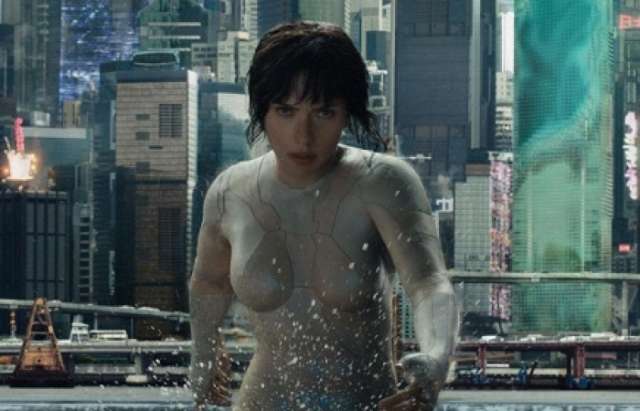The Lost City of Z
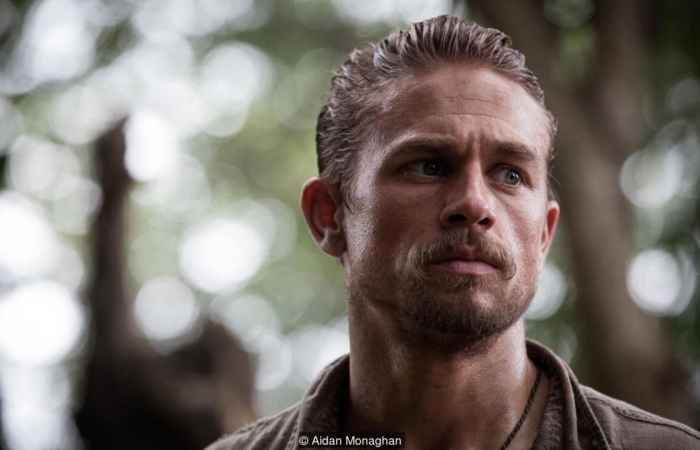
This true-life drama, based on a book by David Grann and directed by James Gray (The Immigrant), follows a British explorer who disappeared in 1925 after discovering signs of an ancient civilisation deep in the Amazon rainforest. Charlie Hunnam (Pacific Rim) stars as the colonel who returns to the jungle repeatedly in an attempt to prove the existence of a lost city – his story is at once a classic adventure and “a far quieter, more ruminative, and confidently intimate movie than that would suggest”. According to The Telegraph’s Robbie Collin, it’s “a film as transporting, profound and staggering in its emotional power as anything I’ve seen in the cinema in years”. Released 15 March in France, 24 March in Ireland and 30 March in Germany. (Credit: Aidan Monaghan)
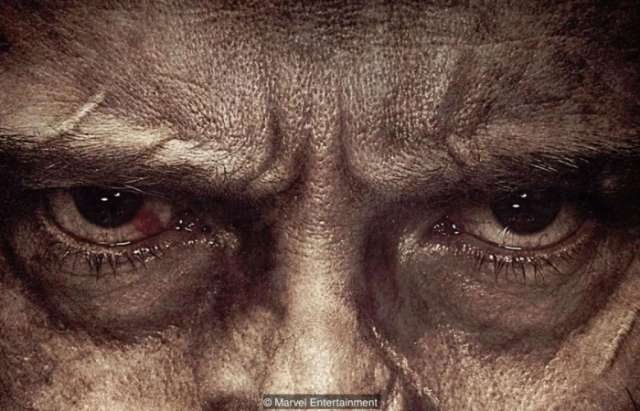
Logan
In what is said to be Hugh Jackman’s last outing with the knuckle blades, comic book CGI and supersized heroism are eschewed for a wholly different style of film. According to BBC Culture’s Jessica Kiang, “Logan does go defiantly against the grain by favouring melancholic mood and themes of mortality and deterioration over inflated, end-of-the-world stakes or grandiose action pyrotechnics”; Variety called Logan “a scruffy dystopian road Western that takes its time in a way that most slam-bang superhero movies don’t”. It’s 2029, and Wolverine is one of the only mutants left. He looks after a 90-year-old Charles Xavier (Patrick Stewart), kept under sedation lest his degenerative disease unleashes his ‘weapon of mass destruction’ brain, and agrees to drive a young girl to a refuge for mutants. Director James Mangold offers an elegy to a broken, drunk Wolverine whose powers are fading, and in doing so creates “a Marvel movie with a bit of soul and some true grit”. On general release from 1 March. (Credit: Marvel Entertainment)
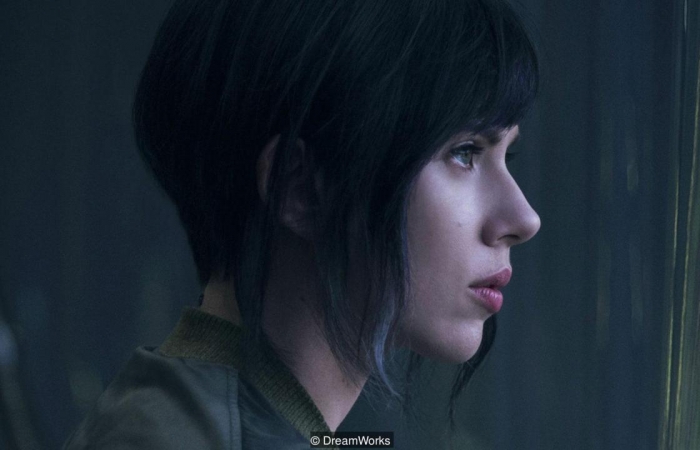
Ghost in the Shell
In this live-action remake of the cult manga series written and illustrated by Masamune Shirow, Scarlett Johansson (Lucy, Under the Skin) revisits cerebral sci-fi as a cybercop with a human soul. Yet by casting the American actress, the film’s makers have been accused of creating a “bizarre whitewashed vision of the land of the rising sun”. According to The Guardian, the original film dwarfed Westworld and Ex-Machina in “scope and intellectual ambition”, looking “beyond the curve of the horizon to the stage beyond that, to the unsettling, darkling reality of our own fusion with technology”: can this version match that? Directed by Rupert Sanders (Snow White and the Huntsman), it co-stars Juliette Binoche and Pilou Asbæk – and Johansson appears to have given a lot of thought to the part. “She’s living a unique experience,” the actress told Empire, “as somebody who has an idea of who she thinks she was, and then who she is now, and the person that she feels she is, this sort of gnawing feeling she has in her ghost.
Being able to play those three sides: the ego, the superego and the id... That was pretty enticing.” On general release from 29 March. (Credit: DreamWorks)
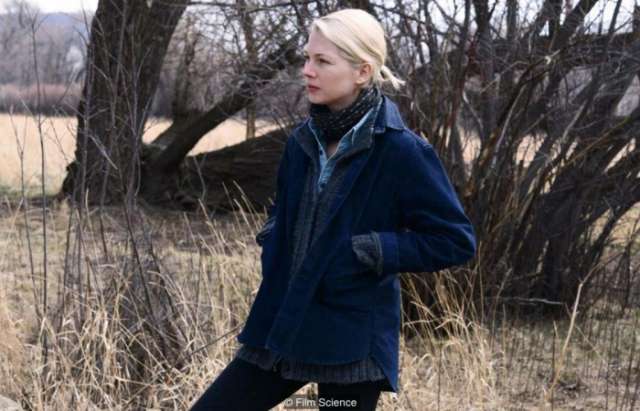
Certain Women
Auteur Kelly Reichardt (Night Moves, Meek’s Cutoff) has drawn praise for her latest film, with Sight and Sound describing it as “powerful, focused, nervy, lean… a work of art produced by a director in full control of her material. It leaves you reeling.” Michelle Williams, Kristen Stewart, Laura Dern and Lily Gladstone star as four women in Montana with intersecting lives: based on the short stories by Maile Meloy, the film is a series of vignettes set against the vast skies of the American Northwest. According to The Washington Post, “Reichardt lets her flawed, enigmatic heroines be, allowing them to keep struggling, persevering and relishing what can sometimes pass for tiny victories”. Released 2 March in Germany, 3 March in Ireland and 23 March in Lithuania. (Credit: Film Science)
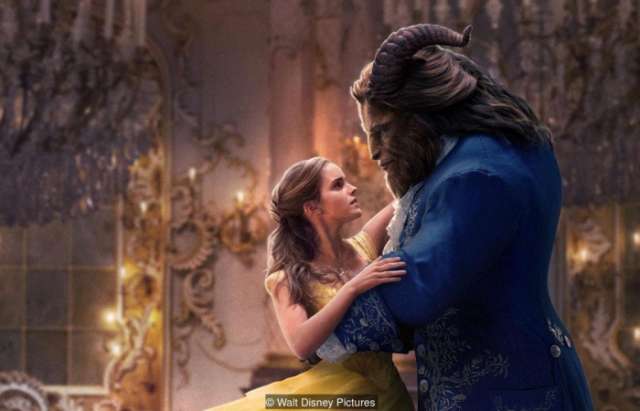
Beauty and the Beast
Away from the saccharine music and sweeping ballgowns of the trailer, Beauty and the Beast has been associated with some unlikely themes. In a recent interview with Entertainment Weekly headlined ‘Emma Watson addresses questions over beast relationship’, the film’s star discussed theories that the fairy tale was actually a thinly-veiled story of abuse. “It’s something I really grappled with at the beginning; the kind of Stockholm Syndrome question about this story,” she says. “That’s where a prisoner will take on the characteristics of and fall in love with the captor.” But, she argues, Belle doesn’t fit that “because she keeps her independence, she keeps that freedom of thought”. In the live-action retelling of the studio’s animated classic, Dan Stevens plays the Beast, while Kevin Kline plays Maurice and Ewan McGregor voices the candlestick Lumiere. On general release from 16 March. (Credit: Walt Disney Pictures)
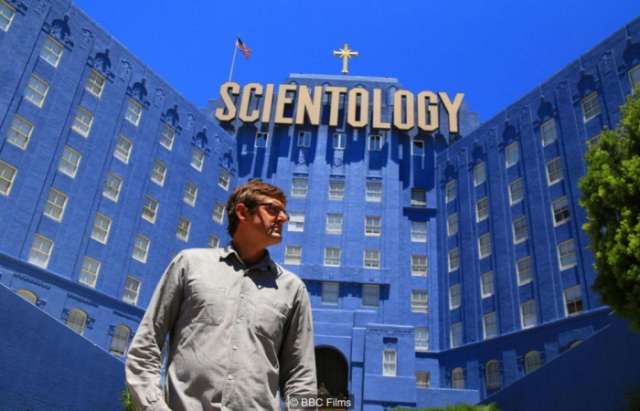
My Scientology Movie
“I find that the most inexplicable behavior is motivated by very relatable human impulses,” comments Louis Theroux in this feature documentary exploring the Church of Scientology. Refused access to the church headquarters, he interviews former members with his particular blend of impassivity and curiosity, using actors to replay incidents they claim happened. While Alex Gibney’s Going Clear remains the definitive take on a highly secretive community, this is, according to The Observer, “an amusing, eye-opening film”. Released 10 March in the US. (Credit: BBC Films)
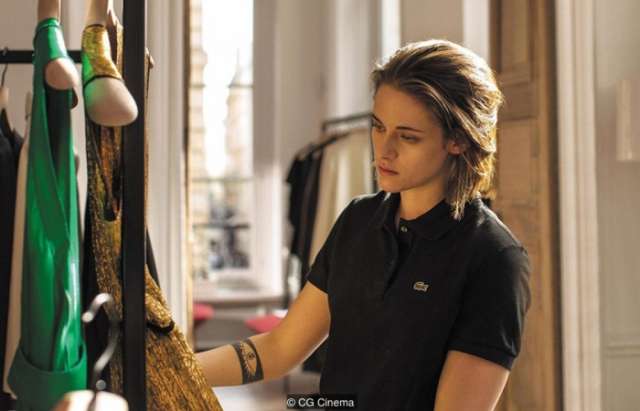
Personal Shopper
French film-maker Olivier Assayas (Clouds of Sils Maria) takes on the ghost story with this tale of a woman grieving her twin brother. Kristen Stewart stars as a Paris-based personal shopper who also claims to be a medium, attempting to bridge the gap between the living and the dead. According to Sight and Sound, she has “an enigmatic, warily frayed-yet-unafraid presence, almost as if she’d be happy to step over to the ‘other side’ at any moment”, and Assayas handles the haunting to create “a masterpiece of tension-building”. It’s part psychological drama exploring the terrain of grief, and part supernatural spine-tingler: “Assayas serves up a couple of genuinely frightening effects set pieces”, says the AV Club.
Released 10 March in the US and 23 March in Argentina and Singapore. (Credit: CG Cinema)

Viceroy’s House
British-Indian director Gurinder Chadha (Bend it Like Beckham) “channels her inner David Lean” for this period drama set at the moment of Partition, 70 years ago. It tells the story of Indian independence – and the creation of Pakistan – with a Downton Abbey filter, Hugh Bonneville and Gillian Anderson playing the Mountbattens as they prepare to leave a country that is about to split into two. Huma Qureshi, Manish Dayal and the late Om Puri co-star in what’s essentially an upstairs-downstairs take on world affairs. According to The Guardian, a Capulet-Montague-esque love affair is “offered as an emollient to the geopolitical agonies of division that are playing out on the larger stage”, and Chadha displays an “irrepressible and good-natured flair for storytelling, and sharp observational eye for the clenched unease of Britain’s patrician ruling class”.
Released 3 March in Ireland and 10 March in Norway (and 11 August in India). (Credit: BBC Films)
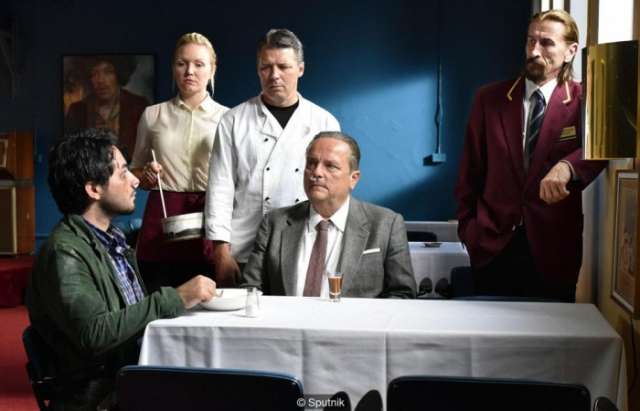
The Other Side of Hope
The second part in Aki Kaurismäki’s putative ‘dockyards trilogy’ is “a gently loving fable with a straightforward political message that home can be wherever you find it”, according to Sight and Sound. The Finnish film-maker’s first feature in six years drew five-star reviews when it premiered at this year’s Berlin Film Festival, with The Telegraph describing it as a “gorgeous, cuttingly poignant, and soon, surely, to be prize-winning” comedy. Following a Syrian asylum seeker as he arrives in Helsinki and attempts to find a life for himself, it displays Kaurismäki’s signature wit, balancing bleakness with warmth. As The Hollywood Reporter put it, “this is a world that reeks of cigarette smoke and cheap vodka, yet as always in the work of Finland’s maestro of droll melancholy, the perfume that lingers longest is empathy”. Released 15 March in France, 17 March in Sweden and 30 March in Germany. (Credit: Sputnik)








